
 |
 |
From Classrooms to Courtrooms: The LUMS Legal Aid Clinic is set to formally launch in Spring 2025, with all the preparatory work laid out in Fall. With strong connections established with the Department of Social Welfare, Punjab and Punjab Prisons, Ms. Maira Mumtaz has taken and completed a bail case and a khula case, streamlining the process for clinic referrals. As the first credited clinical course in the country, the Legal Aid Clinic is an exciting new venture that promises to build student skills in client interactions, drafting, research, ethical considerations, and argumentation. Most of all, it aims to connect students to the service considerations of the legal profession, allowing students to engage with vulnerable communities that the profession must seek to support. |
|
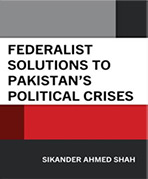 |
Dr. Sikander Ahmad Shah’s (Associate Professor) latest book publication. Federalist Solutions to Pakistan's Political Crises (Publisher: Rowan & Littlefield) explores how the application of communal democratic principles can transform Pakistan’s political and economic systems for the better. It critiques the current consociational framework, which bases federal organization on ethnic identity, and highlights the challenges posed to the nation by the application of neoliberal policies. Dr. Shah proposes a decentralized centripetal model - one that promotes power-sharing - as a counter to hegemonic forces at play in the Pakistani context, and as a means of enhancing intranational social cohesion. This model advocates for smaller, more diverse provinces that more accurately reflect local demographics as a means of increasing political representation. The proposed model also incorporates democratic values such as justice, grassroots democracy, and minority protections in order to effect more positive outcomes for the Pakistani polity and its more vulnerable segments. The book also examines the civil-military power imbalance and the impact of the China-Pakistan Economic Corridor (CPEC) on Pakistan's federal structure and socio-economic dynamics. Ultimately, the work offers context-specific solutions to address historical power imbalances and promote equitable outcomes within the historically fractious nation. |
||
| Teach-in Sessions: |
| Exploring Solutions to Pakistan’s Pressing Issues |
 |
Professor Marva Khan Cheema (Assistant Professor) |
||
| Welcoming New Faculty Members to SAHSOL |
|||
 |
26th Amendment to the
Constitution of Pakistan Dr. Adnan Sattar, Ms. Marva Khan, Dr. Sadaf Aziz examined the amendment’s implications for judicial independence, judicial review and parliamentary democracy in Pakistan. |
Pakistan’s Smog Crisis Dr. Aisha Ahmad and Mr. Fahad Malik discussed the smog emergency, its causes, and potential solutions to address this pressing issue. |
 |
|
 |
Dr. Raza Saeed joins as Visiting Associate Professor. An Associate Professor at the University of Warwick, UK, he specializes in public international law, law & development, and legal-political theory in developing countries. |  |
Ms. Maira Mumtaz, Advocate of LHC joins as a Teaching Fellow at LUMS Law Clinic. With litigation experience in civil, corporate, and criminal law, she brings a strong focus on human rights and aims to blend theoretical knowledge with practical skills. | |||
 |
Asghar Leghari v. Federation of Pakistan Quoted at International Court of Justice at the Hague during hearings on the obligations of states regarding climate change. Asghar Leghari graduated from SAHSOL in (2013) and went on to gain an LLM at Duke University in (2018). Asked to comment on this significant case, he writes the following: Climate litigation is by no means a panacea, but it is necessary. The impact of judicial intervention in matters of policy may seem undesirable and..... |
 |
| From SAHSOL to the World: Recent Graduates Shine at Top LLM & BCL Programs |
||
 |
Vice Chancellor's Alumni Achievement Award Winners 2024 |
 |
||||
|
Mr. Gilani is a Supreme Court lawyer and a public intellectual. He runs an Islamabad-based full-service law firm, Law and Policy Chambers, which has partner offices in all the provincial capitals of Pakistan. After graduating in 2010, he became Coordinator of the Supreme Court’s Law Clerkship Programme where he benefitted from the mentorship of Justice Jawwad S. Khawaja... |
Ms. Malik is dedicated to transforming justice systems for marginalised communities. As a lawyer, she has been instrumental in public interest litigation, advancing gender-responsive safeguards for rape survivors, strengthening protections for children in conflict with the law, and advocating for prisoners with mental illnesses..... |
|
|||
 |
 |
 |
||||
Consultation Workshop for the Trade Union Federation and Labor Lawyers on the new Uniform Labor Codes Dr. Syed Azeem (Associate Professor) and Mr. Muhammad Umar (Visiting Assistant Professor) held consultations with key actors to apprise them of proposed changes to the regulation of labor through the uniform Labor Codes introduced by the Provincial Governments in Punjab and Sindh. |
Workshop Series on Historical & Archival Research for Legal Scholars Led by Dr. Kristin Plys (Associate Professor, Sociology & History, University of Toronto), the workshop series explored the intersection of law and history. This workshop equipped legal scholars and history enthusiasts with valuable tools for archival research. |
Mediation as the Future of Dispute Resolution: Why Do We Need It Now More Than Ever? Mr. Muhammad Shahzar Ilahi (Accredited Civil & Commercial Mediator, CEDR London) |
||||
 |
 |
 |
||||
Voice of Resilience: A dialogue with a Gaza Field Doctor Dr. Hina Cheema (U.S based OB/GYN) shed light on her profound experiences from Gaza, highlighting the courage, compassion, and resilience required to serve communities under immense adversity. |
Does Islamic Feminism help Muslim Women achieve their Rights? Dr. Rehana Parveen (Associate Professor, University of Birmingham) presented ongoing research on British Muslims and English Family Law, exploring the complexities that arise for Muslim women and their marginalization as faithful legal actors in that context. |
Guess Who’s Paying for Dinner Tonight? The Right to Food and Competition in Food Markets Dr. Amber Darr (Lecturer, Competition Law, University of Manchester) explains the influence of large transitional corporations working in the food sector impacting the right of food not only on the end consumer, but also on the small farmer supplier. She discusses the narrow focus on prices resulting in the pressures on supply chains and how that impacts our right to food. |
||||
 |
 |
 |
||||
Silencing the Messenger:
The Mr. John Baker Atyani (Editor-in-Chief of Independent Urdu & Bureau Chief, Arab News) in a thought-provoking discussion on the challenges faced by journalists in developing countries like Pakistan. He discusses how government regulations undermine journalistic integrity, media ethics, real world case studies and the urgent need for legal reforms. |
Insanity Defense: God Told Me to Kill Dr. Ansar Haroun, an esteemed forensic psychiatrist and a clinical professor of psychiatry and pediatrics, responsible for introducing the world’s first and only med school elective known as “Law and Logic and Ethics in Medicine, was the guest speaker for Professor Angbeen Mirza's Criminal Law class. Communicating insights into the intersection of mental health and criminal law deepened students' understanding of the complexities of the insanity defense as it has been employed in the US criminal justice system. |
NAB Laws and
White-Collar Crimes Mr. Zahir Shah (Member, Prime Minister Inspection Commission and former Deputy Chairman of NAB) shared insights into the legal aspect of financial crimes, challenges of tackling corruption and NAB’s role in upholding accountability in Pakistan.
|
||||
 |
||||||
 |
 |
 |
|||||
|
|
|
|||||
 |
 |
 |
|||
|
|
|||
Student Support at SAHSOL |
||||||||
|
 |
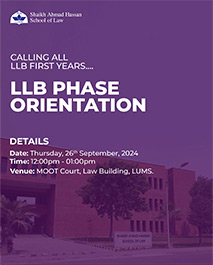 |
||||||
 |
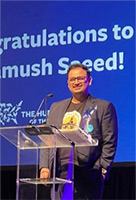 |
|
|
||||||||
|
|
|||||||||
 |
 |
 |
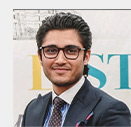 |
|||||||
|
|
|
|
|||||||
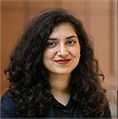 |
 |
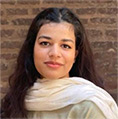 |
 |
|||||||
|
|
|
|
|||||||
 |
||||||||||
|
|
||||||
|
|
||||||
|
|
||||||
|